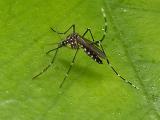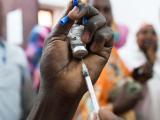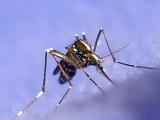The European Centre for Disease Prevention and Control (ECDC) released a risk assessment on yellow fever yesterday, noting a new case of travel-associated disease in a person from the Netherlands. This is the fourth case reported in Europeans who had recently traveled to South America in the past 8 months.
The traveler had recently returned from Suriname, a former Dutch colony on the northwestern coast of South America. The patient had traveled to Suriname in February and March, and the case was reported to the National Institute for Public Health and the Environment (RIVM) in the Netherlands on Mar 9.
The three other recent yellow fever cases in Europeans with a history of travel to South America include two French nationals who visited several endemic areas of Peru and a Danish citizen got sick in Bolivia after visiting yellow fever endemic areas in the Amazon basin.
According to the ECDC, these cases represent a dramatic spike in travel-related yellow fever: Between 1999 and 2016 there were only four reported cases of travel-related yellow fever in the European Union (EU).
ECDC to watch Brazil
The ECDC said the current yellow fever outbreak in Brazil, which began in January and has now logged more than 1,500 suspected cases, should put travelers and health care providers on high alert for the mosquito-borne disease.
It added that though South America is experiencing a cyclical increase in the number of cases in monkeys and humans and that an increase in unvaccinated travelers is expected, the risk to travelers may extend beyond areas that are typically considered endemic, such as in Brazil's Espirito Santo state.
"EU travelers travelling to areas at risk of yellow fever in South America should be informed of the potential exposure to yellow fever virus and an individual risk-benefit analysis should be conducted during pre-travel medical consultation," the EDCD said in their risk assessment.
The ECDC recommends yellow vaccination for anyone over the age of 9 months when traveling to Brazil or affected parts of South America.
Warnings come in wake of US concerns
Last week, Anthony Fauci, MD, director of the US National Institute of Allergy and Infectious Diseases, and his associate Catharine Paules, MD, penned a perspective piece in the New England Journal of Medicine warning that the current yellow fever outbreak in Brazil was worrisome, because it could reach Brazil's major cities and population of Aedes aegypti mosquitoes.
In densely populated urban centers, yellow fever could quickly become a Zika-like epidemic, posing a risk of international spread, similar to recent outbreaks in Angola and the Democratic Republic of Congo, the authors wrote. They warned that areas at greatest threat in the United States include territories such as Puerto Rico and warmer regions of the Gulf Coast, where travel-linked cases could spread to virus to Ae aegypti populations and result in local transmission.
See also:
Mar 14 ECDC risk assessment
Mar 9 CIDRAP News story "Yellow fever in Brazil raises worries of new Zika-like threat"




















